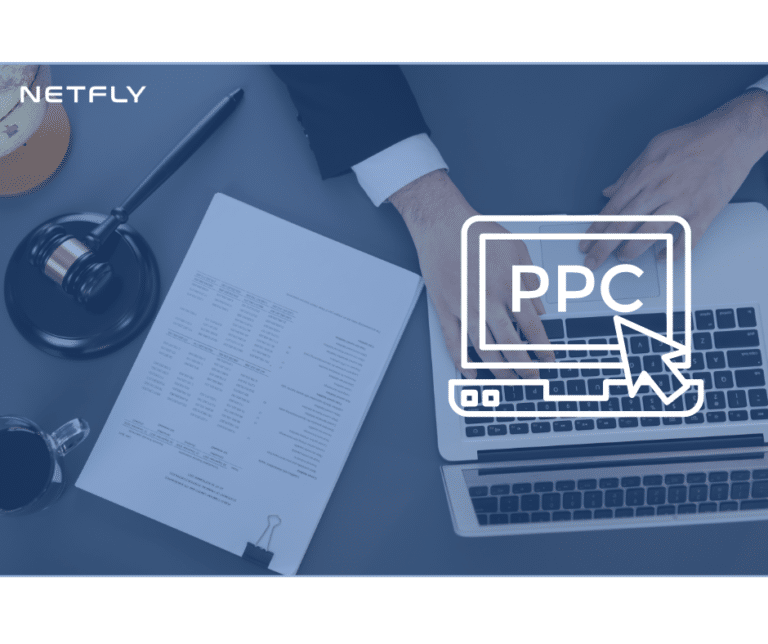In a digital landscape where competition among law firms is fierce, understanding why certain online marketing practices stand out as the best for attorneys becomes essential. Each strategy, from search engine optimization (SEO) to local SEO techniques, plays an important role in enhancing a firm’s visibility and credibility. By implementing content marketing, attorneys can position themselves as experts in their field, while social media engagement opens channels for direct client communication. Pay-per-click advertising and email marketing further drive targeted exposure and client relationships. But what specific benefits do these practices offer that make them indispensable for legal professionals?
Key Takeaways
- Enhances visibility: SEO and local SEO ensure attorneys rank higher in search results, increasing their online visibility and attracting more clients.
- Builds credibility: Content marketing and online reviews management establish attorneys as trustworthy experts in their field, fostering client confidence.
- Direct engagement: Social media allows attorneys to interact with potential clients, enhancing relationships and demonstrating commitment to client service.
- Cost-effective client acquisition: PPC advertising provides targeted client acquisition, ensuring attorneys only pay for actual clicks, optimizing marketing spend.
- Nurtures relationships: Email marketing keeps attorneys top-of-mind, delivering valuable content and updates to potential and existing clients, strengthening relationships.
Search Engine Optimization
Search Engine Optimization (SEO) is essential for attorneys aiming to rank higher on search engines and attract more clients through organic search traffic. Effective SEO begins with thorough keyword research. Attorneys need to identify the specific terms potential clients use when searching for legal services. This involves analyzing search volume, competition, and user intent to find the most valuable keywords. For instance, terms like ‘personal injury lawyer’ or ‘divorce attorney near me’ often yield high search volumes and can attract targeted traffic if used strategically.
Once the right keywords are identified, attorneys must incorporate them naturally into their website’s content, meta descriptions, and headers. This practice not only helps search engines understand the relevance of their pages but also enhances the user experience by providing clear and concise information.
Another important aspect of SEO is backlink building. High-quality backlinks from reputable websites signal to search engines that an attorney’s website is trustworthy and authoritative. This can greatly enhance search engine rankings. Attorneys should focus on obtaining backlinks from legal directories, industry-specific blogs, and news websites. For example, contributing guest posts to respected legal blogs can provide valuable backlinks while also showcasing expertise in a specific legal area.
Moreover, local SEO can’t be overlooked. Attorneys should make sure their Google My Business profiles are optimized and consistent across all online directories. This improves visibility in local searches, which are particularly relevant for legal services.
Content Marketing
Content marketing is a powerful tool for attorneys to showcase their expertise, build trust with potential clients, and drive engagement through valuable and informative content. Attorneys who regularly produce high-quality content can position themselves as thought leaders in their field. Legal blogs and case studies are particularly effective formats for content marketing, as they allow attorneys to explore complex topics, provide detailed analysis, and demonstrate their deep understanding of the law.
Legal blogs offer attorneys the opportunity to address frequently asked questions, provide updates on recent legal developments, and offer insights into specific areas of law. By consistently publishing well-researched and informative blog posts, attorneys can attract a steady stream of visitors to their website, improving their online visibility and search engine rankings. Data shows that businesses with active blogs generate 67% more leads than those without, a statistic that holds true for law firms as well.
Case studies, on the other hand, allow attorneys to highlight their successes and showcase their problem-solving abilities. By presenting detailed accounts of past cases, including the challenges faced and the strategies employed, attorneys can provide potential clients with tangible proof of their expertise and effectiveness. This not only builds credibility but also helps in establishing a strong rapport with prospective clients who may be facing similar legal issues.
Social Media Engagement
Leveraging social media platforms allows attorneys to engage directly with their audience, build a robust online presence, and attract potential clients through strategic interactions and valuable content sharing. Social media engagement is a cornerstone of modern legal marketing, enabling firms to foster client interaction and enhance brand awareness. By consistently sharing informative content, attorneys can position themselves as thought leaders and trusted advisors in their respective fields.
Data supports the efficacy of social media for legal professionals. According to the American Bar Association, over 35% of lawyers who use social media for professional purposes have gained clients directly through these platforms. Regularly posting updates about legal developments, sharing client testimonials, and participating in online discussions can significantly boost visibility and credibility.
Client interaction on social media isn’t just about broadcasting information; it’s about creating meaningful dialogue. Responding to comments and messages promptly can demonstrate a firm’s commitment to client service, which is vital in the legal industry. Additionally, platforms like LinkedIn, Twitter, and Facebook offer analytics tools that can help attorneys measure engagement levels and adjust strategies accordingly.
Building brand awareness is another critical benefit of social media engagement. Attorneys can leverage these platforms to showcase their firm’s unique value proposition, highlight successful case outcomes, and share community involvement. Visual content, such as infographics and video snippets, can be particularly effective in capturing attention and conveying complex legal concepts in an accessible manner.
Pay-Per-Click Advertising
Pay-Per-Click (PPC) advertising offers attorneys a highly targeted and measurable method to attract potential clients by displaying ads prominently in search engine results and on social media platforms. This form of advertising guarantees that legal services are visible to individuals actively seeking legal representation, thereby enhancing the likelihood of conversion. The precision of PPC advertising lies in its data-driven approach, where advertisement cost is controlled through strategic keyword selection and bid management.
For attorneys, selecting the right keywords is vital. Keywords must be specific to the legal services offered and the geographical area served. For example, an attorney specializing in family law in Chicago would benefit from keywords like “Chicago family lawyer” or “divorce attorney Chicago.” These targeted keywords not only enhance the relevance of the ads but also improve the quality score, leading to lower advertisement costs and higher ad positions.
Data shows that PPC campaigns can yield a high return on investment (ROI) when executed correctly. According to industry statistics, businesses earn an average of $2 in revenue for every $1 spent on Google Ads. For attorneys, this means a well-managed PPC campaign can greatly boost client intake and overall revenue. Additionally, PPC tools provide real-time analytics, enabling attorneys to adjust their strategies based on performance metrics such as click-through rates (CTR) and conversion rates.
Moreover, the cost-per-click (CPC) model ensures that attorneys only pay when a potential client clicks on their ad, making PPC an efficient and cost-effective marketing strategy. By leveraging PPC advertising, attorneys can effectively manage their marketing budgets while achieving measurable results that drive business growth.
Email Marketing
Email marketing provides attorneys with a crucial tool to nurture client relationships and drive engagement through targeted, personalized communication. By leveraging client newsletters, attorneys can keep their audience informed about legal updates, case results, and industry trends. This consistent communication not only keeps the firm top-of-mind but also establishes the attorney’s authority and expertise in their field.
Lead nurturing through email marketing is particularly effective in the legal industry. Prospective clients often require time and multiple touchpoints before deciding to engage legal services. Automated email campaigns can be designed to deliver valuable content that addresses potential clients’ concerns, educates them on legal matters, and demonstrates the attorney’s proficiency. According to a study by HubSpot, businesses that excel at lead nurturing generate 50% more sales-ready leads at a 33% lower cost. This data underscores the importance of a well-crafted email marketing strategy in converting leads into clients.
Client newsletters serve as an essential component of this strategy, offering a platform to share success stories, client testimonials, and upcoming events. These communications help build trust and foster a sense of community among recipients. Additionally, segmented email lists allow attorneys to tailor messages to specific client groups, ensuring relevance and increasing engagement rates.
Moreover, email marketing provides measurable results. Analytics tools enable attorneys to track open rates, click-through rates, and conversion rates, offering insights into what content resonates with their audience. This data-driven approach allows for continuous refinement and optimization of email campaigns, ensuring maximum impact and return on investment. In an era where digital communication dominates, email marketing remains a critical practice for attorneys aiming to maintain and grow their client base effectively.
Online Reviews Management
Maintaining a positive online reputation is just as vital as nurturing client relationships through email marketing, making online reviews management a key component of a successful digital strategy for attorneys. Lawyers rely heavily on trust and credibility, and potential clients often turn to online reviews to gauge an attorney’s qualifications and reliability. An effective reviews management strategy guarantees that prospective clients see a well-rounded, positive image of the legal services provided.
Client testimonials are invaluable assets in this regard. Authentic, positive reviews can greatly influence a potential client’s decision-making process. According to a BrightLocal survey, 82% of consumers read online reviews for local businesses, including legal services. Encouraging satisfied clients to leave detailed testimonials on platforms like Google My Business, Yelp, and Avvo can enhance an attorney’s online visibility and credibility.
Reputation monitoring is another critical aspect of managing online reviews. Attorneys must actively track what is being said about them online to address any negative feedback promptly and professionally. Tools like Google Alerts, ReviewTrackers, and Reputation.com can assist in monitoring mentions and reviews across various platforms.
Addressing negative reviews constructively can turn a potentially harmful situation into an opportunity for improvement. A well-handled negative review can showcase an attorney’s commitment to client satisfaction and professionalism. Furthermore, consistently responding to reviews shows potential clients that the attorney values feedback and is dedicated to maintaining high service standards.
Local SEO Techniques
Utilizing local SEO techniques is essential for attorneys aiming to enhance their visibility and attract more clients within their geographical area. Local SEO isn’t just a buzzword; it’s a strategic approach that leverages local citations and geo targeting to make sure an attorney’s practice shows up prominently in search results for their locality. This is particularly important given that 46% of all Google searches are seeking local information.
One of the most effective local SEO strategies involves optimizing local citations. These are mentions of a law firm’s name, address, and phone number (NAP) across various online directories and websites. Consistent and accurate local citations improve a firm’s search engine ranking and increase its credibility. According to Moz, local citations are a foundational factor for local search ranking, contributing up to 13% of the ranking factors.
Geo targeting further amplifies local SEO efforts by tailoring an attorney’s online presence to specific geographic areas. By incorporating geo-targeted keywords throughout their website and content, attorneys can attract clients who are searching for legal services in their vicinity. For instance, including phrases like ‘divorce lawyer in San Francisco’ or ‘personal injury attorney near me’ can greatly boost visibility. Google’s algorithm prioritizes these geo-targeted keywords, making it easier for potential clients to find relevant legal services.
Moreover, Google My Business (GMB) is an important tool in the local SEO toolkit. Attorneys should make sure their GMB profile is fully optimized with up-to-date information, client reviews, and high-quality images. According to a BrightLocal survey, 64% of consumers have used GMB to find contact details for local businesses, highlighting its significance.
Frequently Asked Questions
How Can Attorneys Effectively Network With Potential Clients Online?
Attorneys can effectively network with potential clients online by leveraging social media platforms and engaging in virtual networking events. Studies show that 73% of clients use social media to research legal services, making these tools essential.
What Are the Ethical Considerations for Attorneys in Online Marketing?
Attorneys must uphold client confidentiality and provide authentic representation in online marketing. Misleading ads can harm their reputation and violate ethical guidelines. Data shows that transparent approaches build trust, attracting more clients while maintaining professional integrity.
How Should Attorneys Handle Negative Feedback Received Online?
Attorneys should handle negative feedback by responding promptly and maintaining a professional tone. Data shows that timely, respectful responses can mitigate damage and sometimes convert dissatisfied clients into loyal advocates, enhancing their online reputation.
What Role Does Website Design Play in an Attorney’s Online Presence?
Website design has a profound impact on an attorney’s online presence. A visually appealing, user-friendly website enhances user experience, leading to increased engagement and client retention. Data shows clients are 75% more likely to trust well-designed legal websites.
How Can Attorneys Measure the ROI of Their Online Marketing Efforts?
Attorneys can measure the ROI of their online marketing efforts by utilizing conversion tracking and lead attribution tools, which provide data-driven insights into which strategies generate client leads and ultimately drive revenue growth.
Conclusion
In today’s competitive legal market, these online marketing practices are indispensable for attorneys. SEO enhances visibility, while content marketing positions them as industry experts. Social media engagement builds trust, and pay-per-click advertising offers targeted exposure. Email marketing nurtures relationships, and managing online reviews bolsters credibility. Local SEO techniques attract nearby clients. Collectively, these strategies drive client engagement and growth, making them essential tools for any law firm aiming to succeed online.










